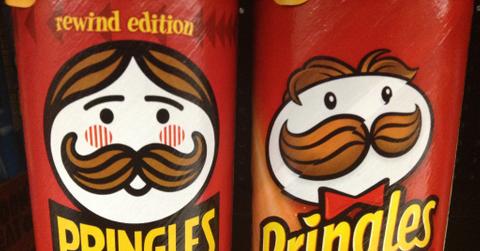How Overcoming The 'Pringles Factor' Helps Companies Go Green
One company's containers have earned the nickname "the Pringles factor," which is now being applied to any food or drink packaging that can't be recycled. Luckily, sustainable packaging is an easy route to overcoming the Pringles factor.
Updated May 23 2019, 8:16 a.m. ET
Most companies would love to have their brands become part of everyday language as a common noun. We know exactly what people are talking about if they ask for a Kleenex or a Band-Aid. But Pringles may not be so pleased with its new, colloquial adaptation. The chip company is such a bad environmental offender, it’s become a noun in the lexicon of polluters. “The Pringles factor” is a new phrase referring to packaging comprised of so many different materials as to render the item unrecyclable. Whether that’s a coffee cup lid, crisp packet, food wrapper, shampoo sachet, or a even straw, there’s a common, blanket term now.
“What idiot designed this in terms of recyclability?” Simon Ellin, chief executive of the Recycling Association, asked of Pringles canisters during a BBC interview. “We’ve got a cardboard tube, a metal bottom, a plastic lid. The Pringles factor—right at the design stage, we’ve got to get that right. What we’re putting in our recycling bins has got to be recyclable. We’ve got to get away from the Pringles factor.”
In their own defense, a Pringles spokesman emphasized the chip company’s commitment to the planet. “All parts of a Pringles can act as a barrier to protect the chips from environmental contamination and to keep them fresh,” the spokesman said. “The freshness of our chips means a longer shelf life, which minimizes food waste.” The spokesperson went on to explain, “We take our responsibilities to the planet we all share seriously and are continuously working to improve our environmental performance.”
Of course, Pringles is far from the only offender in this category. Ellin used Lucozade Sport as another example of the Pringles factor, because the drink container’s two sleeves are comprised of two different plastics. Ditto for spray bottles, which often have springs and other interior mechanisms made of conflicting materials, black plastic food trays, and even whiskey bottles, which often have metal packaging on them.
Ellin’s comments come amidst a $2 million competition launched by around-the-world sailor Ellen MacArthur to keep plastic waste out of oceans. Her effort, in partnership The Prince of Wales’ International Sustainability Unit, seeks to build a circular economy by creating new materials and packaging in order to eliminate plastics waste. Part of that collaboration involves a partnership with NineSigma to award up to $1 million in grants for up to five winners. The task: to make all plastic packaging recyclable, thereby putting an end to the Pringles factor once and for all.
